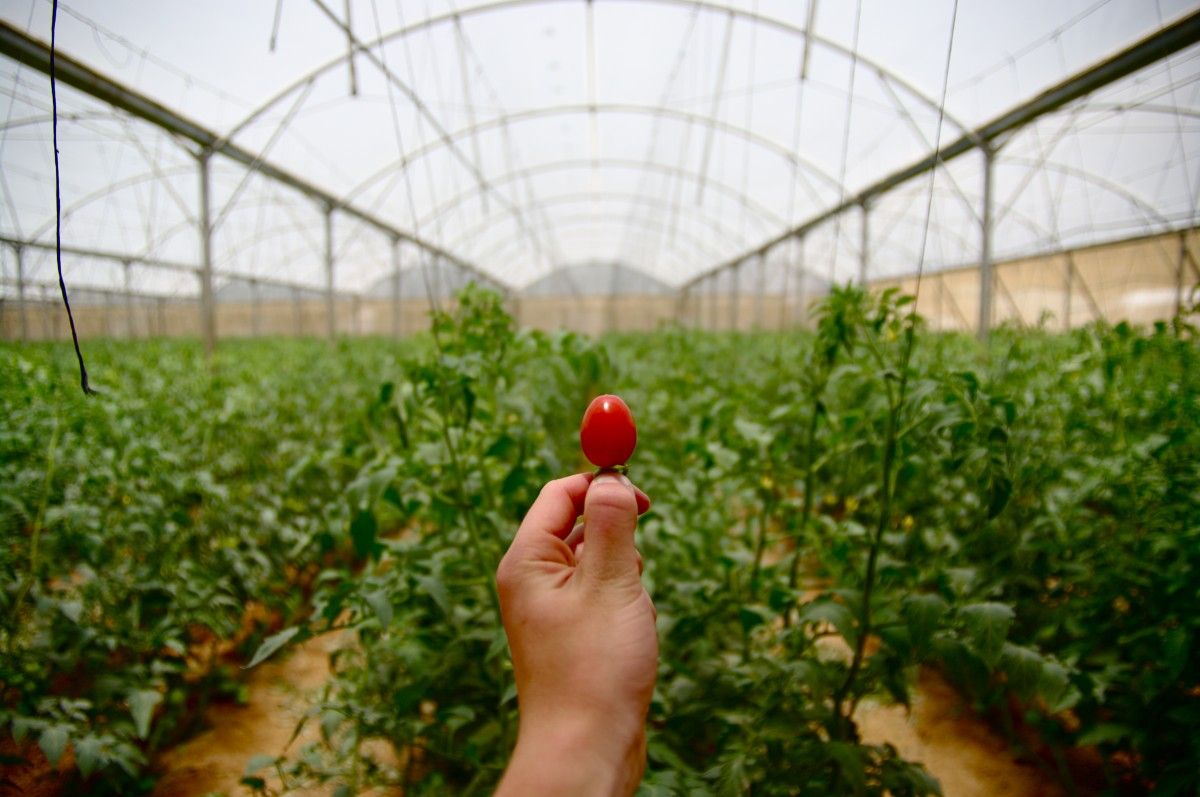For a country barely 67 years old and with a population below 10 million, Israel is quite an economic powerhouse. Long known as the “start-up nation,” the country has been a leader in technological and scientific innovation for decades—including IT, medicine, and national defense—and has the most NASDAQ-listed companies behind the U.S. and China. Now, Israel is emerging as a global pioneer in AgTech.
“In the last two or three years, there has been a big boom in agriculture and food technologies,” said Sarai Kemp, VP of business development at Trendlines AgTech, Israel’s premier incubator for the sector.
According to Kemp, entrepreneurs are “taking the knowledge” learned from innovations in the IT and healthcare industries and applying it to agriculture. Kemp says that the Israeli farming community has shown great enthusiasm for technological advancements, with growers eager to be the first ones to adopt new methods on their farms.
AgTech isn’t a new concept in Israel. In the mid-1960s, a company called Netafim revolutionized the global ag industry by introducing the first slow-release, drip irrigation system to the market. And as Bloomberg reported earlier this month, the bible verse that describes Israel as “a land flowing with milk and honey” is at least half accurate—the country has the most productive dairy cows in the world (10 percent above U.S. milk production), in no small part due to climate-controlled enclosures, sophisticated technologies capable of measuring milk quantity and quality, and bovine health monitoring.
It’s not surprising that such technologies should emerge from a country with such limited arable land and water availability; what Israel lacks in natural resources, it must make up for in ingenuity. Recently, regions facing similar challenges, like Asia and Africa, have begun looking to Israel for answers. In 2012, Israeli agriculture minister Yair Shamir and the Vietnamese government established a joint agriculture R&D fund and free trade agreement. The following year, Afimilk, an Israeli software and data management company for the dairy industry, launched the $500-million TianNing dairy farm project in China’s Ningxia province. The project included the construction of a dairy farm equipped with state-of-the-art technologies and professional leadership from the Afimilk team.
Late next month, the brightest in AgTech will congregate at the 19th annual Agritech International Agricultural Exhibition & Conference in Tel Aviv. On April 27, Trendlines Agtech Accelerator is partnering with Agritech to host the third-annual AgriVest Conference, Israel’s premier event for AgTech investment.
Israeli AgTech companies to watch
These four Israeli companies are developing creative solutions for sustainable agriculture. Check them out.
Aquaculture has become a popular way to produce fish in landlocked and arid regions. But there are two outstanding factors that threaten the productivity of land-based fish farms: unclean conditions—if fish waste isn’t filtered properly, a deadly concentration of ammonia can build up in ponds—and water scarcity. BioFishency, which is currently in the Trendlines AgTech incubator program, has developed what it calls a “cost-effective, all-in-one water treatment system” that aims to help fish farmers clean up their acts, minimize fresh or saltwater usage, and, ultimately, raise healthier fish.
Founded in 2008, Morflora has developed a “non-transgenic trait delivery platform” called TraitUp that could help seeds grow into more resilient plants. CEO Dotan Peleg likens the platform to a vaccine, in that TraitUp doesn’t modify the genetic makeup of plants and traits aren’t inherited by future generations. Rather than augmenting existing DNA, the complex process introduces new genetic sequences to seeds for the “effective expression” of desired traits, such as fungal, virus, and herbicide resistance. By enhancing crops this way, Peleg hopes to reduce dependence on chemical treatments and time-consuming breeding processes.
Roots Sustainable Agriculture Technologies
When Sharon Devir co-founded Roots six years ago, he wanted to find ways to improve crop performance in less-than-hospitable environments. Roots has developed two kinds of close-looped systems: one is a solar-powered irrigation system that delivers cooled water to roots via condensation, and the other works to stabilize root temperatures during summer and winter seasons. The latter uses water pipes installed at ground level and at the root zone, with one for heating and the other for cooling. According to a study, lettuce crops heated by the system experienced a 60 percent yield increase versus untreated lettuce. Conversely, when the Roots system cooled lettuce crops, yields spiked by 40 percent.
This IT firm develops solutions for energy management, solar power, homeland security, and now, with the AgroAmitec-2D Climate Control system, smart indoor farming. AgroAmitec is designed for installation in greenhouses and dairy and poultry farms, and relies on sensors to monitor and control temperature, airflow, shading, and moisture levels. In a greenhouse trial, pepper plants reportedly had an increased yield of 40 percent and water input decreased by 30 percent. And while Israel is home to some high-performing dairy cows, AgroAmitec sees room for improvement. In a case study at a dairy, cows were recorded to have more stable vital signs, and produced an additional 2.5 liters a day.
FEATURED IMAGE: Sam Dosick/Flickr





